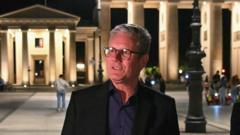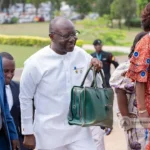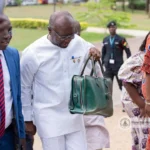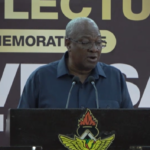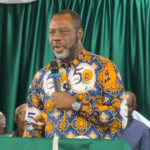The UK is set to start talks on a new co-operation treaty with Germany, as the Labour government looks to “reset” relations with Europe.
Sir Keir Starmer, who is in Berlin for meetings with German Chancellor Olaf Scholz, said the deal was part of a bid to “turn a corner on Brexit”.
Downing Street said the agreement would cover areas such as energy security, technology and science.
It added it would also cover access to each other’s markets and trade across the North Sea.
After Berlin, Sir Keir will travel to Paris to meet French President Emmanuel Macron and attend the Paralympics opening ceremony.
No 10 said it hoped the new treaty with Germany could be agreed by early next year.
Although detailed plans have not been disclosed, discussions about improving market access are expected to focus on areas such as helping firms certificate their products, and providing more information about tenders.
Downing Street added it would build on a defence pact between the two countries already being negotiated, which is due to be finalised in the autumn.
That agreement, announced last month, saw the two countries pledge to buy more military equipment together and make it easier for each other’s armies to use it, as well increase co-operation in areas such as cyber warfare.
Sir Keir has vowed to forge a closer economic relationship with Europe, including a “much better” deal on trade than the one negotiated by Boris Johnson in late 2020.
His Labour government wants to strike deals with the EU to reduce border checks on food products, lessen paperwork for touring artists, and boost recognition of work qualifications, making it easier for some professionals to work abroad.
It also wants to broker a security pact with the EU, as well as a new returns agreement for failed asylum seekers.
It remains unclear whether Brussels would entertain major changes to the UK’s existing Brexit trade deal, which is due to be reviewed in 2026.
Downing Street said the prime minister and Mr Scholz would discuss joint efforts to tackle illegal migration through further sharing of intelligence on smuggling gangs.
Nils Schmid, foreign affairs spokesperson for Mr Scholz’s Social Democratic Party, said the two leaders were “more or less on the same page” in wanting a closer relationship between the UK and the EU.
He told BBC Radio 4’s Today programme Germany hoped to facilitate UK cooperation with the EU on issues including trade, student mobility and defence.
Mr Schmid said a scheme making it easier for young Germans to travel to the UK to study was “major feature of our wish list”.
He insisted such a scheme would not be about “immigration in a general sense” but “stays of limited duration” for educational programmes, student exchanges or work experience.
However, the Labour government has said there are no plans for a scheme that would allow young people from EU countries to live and work in the UK, with young Britons allowed to do the same in Europe in return.
Ahead of the visit, Sir Keir said the UK had a “once in a generation opportunity to reset our relationship with Europe”.
He said that co-operation with both Germany and France would be “crucial” on migration and boosting the UK’s economic growth.
“We must turn a corner on Brexit and fix the broken relationships left behind by the previous government,” he added.
As well as meeting Mr Scholz, Sir Keir will meet German President Frank-Walter Steinmeier and the bosses of energy engineering group Siemens Energy and defence firm Rheinmetall, which makes vehicles for the British Army.

